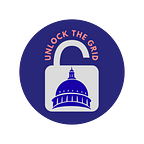US Election Structure: Too Complicated or Just Right?
Is Our Election Structure Too Complicated? Or Just Right?
For centuries, election structures and laws have divided the United States. Most recently, challenges surrounding the two-party system and voting laws have risen to the forefront of America’s concerns regarding our elections. The restrictive party system and the already challenging voting structure contribute massively to gridlock. It’s the responsibility of Congress and the White House to ensure easy and safe voting for all who are eligible.
Examining The Two-Party System
The two-party duopoly between the Republican Party and the Democratic Party has long been the norm of politics in the United States. More and more young people feel that neither party truly represents their intentions and political beliefs in this era. As a result, there is a growing desire for a multi-party system similar to that of several European countries. However, there are still several significant hurdles that stand in the way of the vision of having a more diverse democracy, like the fear of wasting one’s vote, gerrymandering, and lack of funding. Perhaps one of the biggest hurdles to a multi-party diversity is the massive disincentive for the existing, dominating players to change from the status quo. Despite the widely accepted belief that the Democratic and Republican Parties are near opposites, they have an almost symbiotic relationship.
The polarizing and deadlocked nature of contemporary American politics harmoniously benefits both the Democratic and Republican parties. It allows both parties to remain complacent and take no action to improve our American nation while justifying the lack of progress by vilifying each other. Meanwhile, control of Congress and the White House seamlessly switch hands every few terms. Maybe some minor legislation in trivial subject matters is changed to distract the American public and create the illusion that progress is underway. This political charade distracts from the reality that both the Democratic and Republican parties are virtually identical regarding non-trivial subject matters such as interventionist foreign policy, receiving massive amounts of corporate donations, and taking no action against climate change. Allowing a third party to gain prominence in the American political theatre would mean diluting a significant amount of power existing institutions wield, which those currently in power would oppose.
The Impact of Voting Restrictions
In addition to the complexities of the two-party system, laws in some states have become so restrictive that even voting for one of the two major parties is challenging. Following the significant win for Democrats in Georgia, the state legislature imposed harsh, and arguably unreasonable, laws such as criminalizing handing out food and water to voters while waiting to cast their votes. This law also “imposes new voter identification requirements for absentee ballots, empowers state officials to take over local elections boards, [and] limits the use of ballot drop boxes.” Although legislators claim they passed the law to make voting more secure, it will also inevitably harm minorities in the process. Following the 2016 election, a study regarding a voter I.D. law in Wisconsin showed that while voter I.D. laws stop only eight percent of white people from voting, those laws prohibit twenty-seven percent of African-Americans from voting. If this trend continues, the effects of suppressive voting laws will muffle the voices of minorities and make it more difficult for everyone to vote.
As long as restrictive voting laws and the two-party system exist, the United States will face difficulty upholding a true democracy. Everyone’s voice deserves to be heard, yet so many are muffled to defend our current system or push political agendas. It’s beneficial for all political parties to stop voter suppression, so lawmakers should maintain safe and secure voting while also being reasonable enough to represent all groups of people fairly.
Sources:
https://www.pbs.org/newshour/show/how-restrictive-voting-requirements-target-minorities
https://www.cnn.com/2021/03/25/politics/georgia-state-house-voting-bill-passage/index.html
https://washingtonmonthly.com/2021/02/08/making-it-easier-to-vote-is-good-for-republicans-too/
https://washingtonmonthly.com/2021/02/16/leave-the-democratic-party-primary-schedule-alone/
https://reason.com/2021/02/14/the-future-of-the-latino-vote-if-there-is-such-a-thing/
As events in the US have shown, two-party politics is no longer fit for purpose | Polly Toynbee
https://www.businessinsider.com/alaska-ballot-measure-2-live-vote-count-results-2020
